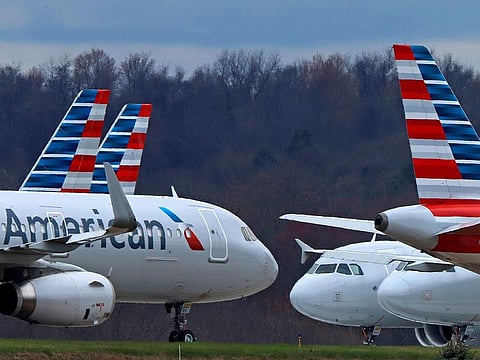Pilots at American Airlines approve record-high contract
Pact will add about $9.6 billion in incremental costs for the airline over its duration

Washington: American Airlines pilots approved a new contract that would provide 46 per cent in cumulative pay raises and retirement contributions over its four-year term, along with a bonus, improved scheduling, sick leave and insurance benefits.
The pact will add about $9.6 billion in incremental costs for the airline over its duration, the Allied Pilots Association said in a statement Monday. That makes it the most expensive labour contract ever for a US carrier, topping the $7.2 billion value of an accord Delta Air Lines pilots secured in March.
The Fort Worth, Texas-based airline's pilots voted 73 per cent in favor of ratification, the union said. American pilots, whose last raise was in 2019, will receive $1.1 billion immediately in a signing bonus and a special payment for past years, the union said.
Labor relations across the industry have been particularly tense, with unions seeking increases in compensation and more flexible work schedules after years without raises and as carriers rake in record revenue on the strong rebound in travel demand. Pilots and flight attendants have frequently picketed at airports and outside of company meetings this year. Labor and jet fuel are the two largest expenses for carriers.
Quality-of-life improvements, including enhanced vacation benefits and higher training pay, account for about 20 per cent of the contract's value, the union said.
"This contract is a big first step toward restoring the wages, benefits and work rules that were lost during the past two decades while our profession was under continuous assault," Ed Sicher, the union's president, said in the statement.
Pilots have had particularly strong leverage in the current round of negotiations because of a shortage that worsened during the pandemic, when thousands retired early or left the industry after travel collapsed. Demand surged faster than expected after countries started lifting coronavirus restrictions in 2021, catching many carriers short of pilots, flight attendants, mechanics and other workers.
Sign up for the Daily Briefing
Get the latest news and updates straight to your inbox






